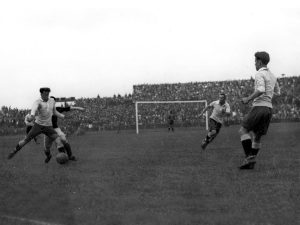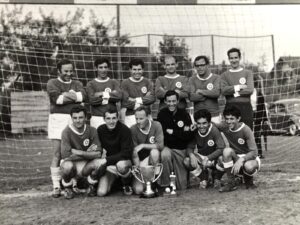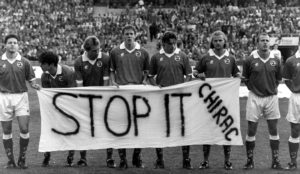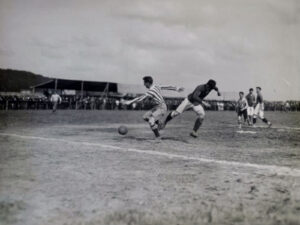
When The Beautiful Game was still quite grim
In the early days, Swiss football had to contend with some unusual challenges. Stakes in the middle of the pitch, a lack of opponents and mockery and derision in the daily press. A look back at the difficult start of the sport on grass.
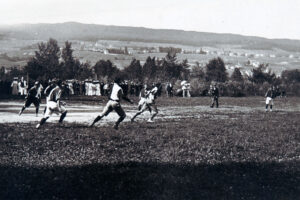
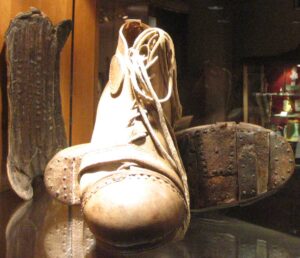
Delays and problems with space
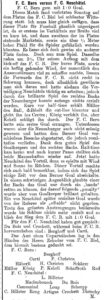
The thing with the rules
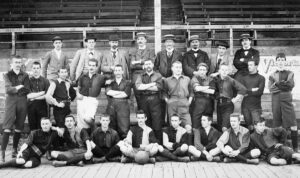
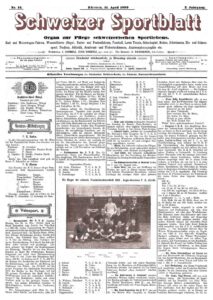
A lively club life
Total club life: Recording of the FCZ yodelling quartet with Hans Enderli, around 1920. YouTube
"Schweizer Sportblatt" newspaper digitised
The Schweizer Sportblatt existed from 1898 to 1900. The Museum of the FC Zurich owns a complete collection of the newspaper. This has been digitised by ETH Zurich and is publicly accessible on e-periodica.

